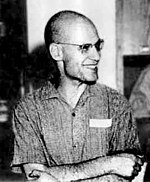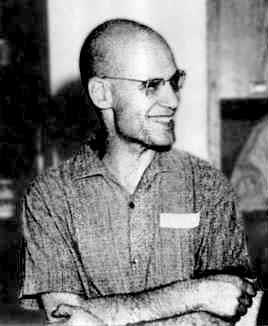
Alexander Grothendieck was a French mathematician who became the leading figure in the creation of modern algebraic geometry. His research extended the scope of the field and added elements of commutative algebra, homological algebra, sheaf theory, and category theory to its foundations, while his so-called "relative" perspective led to revolutionary advances in many areas of pure mathematics. He is considered by many to be the greatest mathematician of the twentieth century.

The French National Centre for Scientific Research is the French state research organisation and is the largest fundamental science agency in Europe.

Jean-Pierre Serre is a French mathematician who has made contributions to algebraic topology, algebraic geometry and algebraic number theory. He was awarded the Fields Medal in 1954, the Wolf Prize in 2000 and the inaugural Abel Prize in 2003.
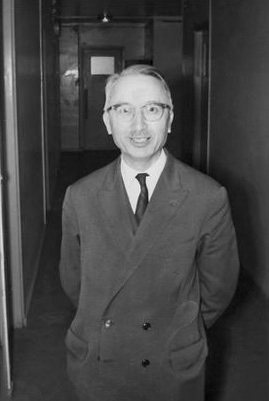
Henri Paul Cartan was a French mathematician who made substantial contributions to algebraic topology.
In mathematics, the Séminaire de Géométrie Algébrique du Bois Marie (SGA) was an influential seminar run by Alexander Grothendieck. It was a unique phenomenon of research and publication outside of the main mathematical journals that ran from 1960 to 1969 at the IHÉS near Paris. The seminar notes were eventually published in twelve volumes, all except one in the Springer Lecture Notes in Mathematics series.

Pierre René, Viscount Deligne is a Belgian mathematician. He is best known for work on the Weil conjectures, leading to a complete proof in 1973. He is the winner of the 2013 Abel Prize, 2008 Wolf Prize, 1988 Crafoord Prize, and 1978 Fields Medal.

Jean Alexandre Eugène Dieudonné was a French mathematician, notable for research in abstract algebra, algebraic geometry, and functional analysis, for close involvement with the Nicolas Bourbaki pseudonymous group and the Éléments de géométrie algébrique project of Alexander Grothendieck, and as a historian of mathematics, particularly in the fields of functional analysis and algebraic topology. His work on the classical groups, and on formal groups, introducing what now are called Dieudonné modules, had a major effect on those fields.

Pierre Émile Cartier is a French mathematician. An associate of the Bourbaki group and at one time a colleague of Alexander Grothendieck, his interests have ranged over algebraic geometry, representation theory, mathematical physics, and category theory.
Jesse Beryle Hahn was an American-French character actor who mostly starred in French films.
Gilles Marchal, born Gilles Pastre, was a French songwriter and singer who reached the height of his career during the 1970s.

Frédéric Vitoux is a French writer and journalist.

Juliet Berto, born Annie Jamet, was a French actress, director and screenwriter.
"Esquisse d'un Programme" is a famous proposal for long-term mathematical research made by the German-born, French mathematician Alexander Grothendieck in 1984. He pursued the sequence of logically linked ideas in his important project proposal from 1984 until 1988, but his proposed research continues to date to be of major interest in several branches of advanced mathematics. Grothendieck's vision provides inspiration today for several developments in mathematics such as the extension and generalization of Galois theory, which is currently being extended based on his original proposal.

Catherine Ribeiro is a French singer. Ribeiro is an experimental folk and avant-garde performer whose work has attained a cult following. With her band Catherine Ribeiro + Alpes, she released several albums in the late 1960s and early 1970s, including Catherine Ribeiro & 2Bis in 1969, No.2 in 1970, and Paix in 1972. Since the late 1970s, Ribeiro has also released music as a solo artist. Public figures who have expressed appreciation for her work include the musicians Kim Gordon and Julian Cope, as well as the French mathematician Cédric Villani.

Luc Illusie is a French mathematician, specializing in algebraic geometry. His most important work concerns the theory of the cotangent complex and deformations, crystalline cohomology and the De Rham–Witt complex, and logarithmic geometry. In 2012, he was awarded the Émile Picard Medal of the French Academy of Sciences.
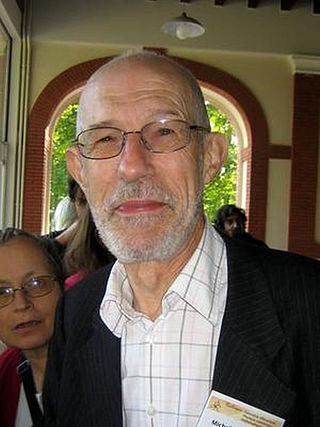
Michel Demazure is a French mathematician. He made contributions in the fields of abstract algebra, algebraic geometry, and computer vision, and participated in the Nicolas Bourbaki collective. He has also been president of the French Mathematical Society and directed two French science museums.
Hoàng Xuân Sính is a Vietnamese mathematician, a student of Grothendieck, the first female mathematics professor in Vietnam, the founder of Thang Long University, and a recipient of the Ordre des Palmes Académiques.
Michèle Raynaud is a French mathematician, who works on algebraic geometry and who worked with Alexandre Grothendieck in Paris in the 1960s at the Institut des hautes études scientifiques (IHÉS).
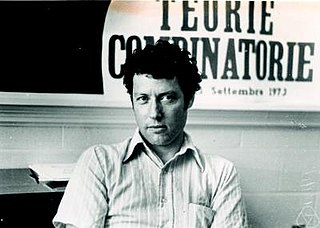
Thomas Henry Brylawski was an American mathematician and professor at the University of North Carolina, Chapel Hill. He worked primarily in matroid theory.
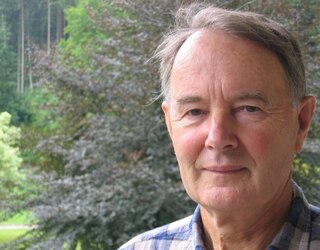
Winfried Scharlau was a German mathematician.
